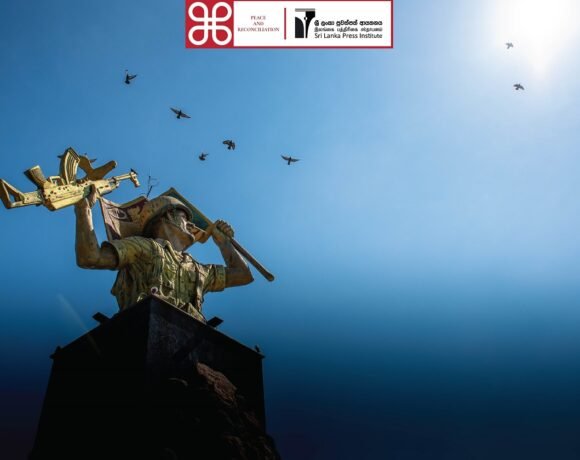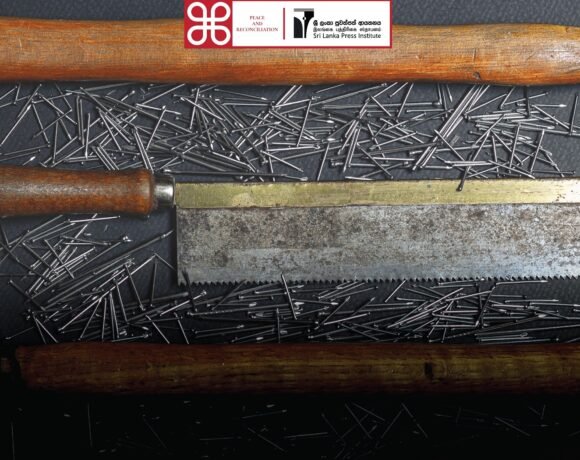
In Conversation with Professor Daya Amarasekara The New President’s Priorities
GAYAN YADDEHIGE
Prof. Amarasekara says the new president faces the challenge of winning back the trust of minority communities.
It has been pointed out by political analysts that there are clear ethnic and religious divisions within the country. These divisions were brought to light as a result of the presidential elections held to elect the seventh executive president of Sri Lanka. Prof. Daya Amarasekara of the Social Science Department of Peradeniya University says that President Gotabaya Rajapaksa faces the challenge of winning back the trust of the minority communities of the country. This is the Professor’s exclusive interview with The Catamaran.
THE CATAMARAN – What is your personal analysis on the results of the Presidential Elections?
The results clearly indicate a division between the Sinhala Buddhists and Tamils and Muslims. This split is not good in terms of the future of the nation. The de-mainstreaming of the minority communities must not be taken lightly. We can see that people have voted focusing on their emotions rather than understanding. Personal ethnic sentiments are specifically displayed in the results which we can see by Gotabaya Rajapaksa achieving a clear victory in the Sinhala dominated areas, and Sajith Premadasa winning the majority in the Tamil and Muslim dominated areas.
THE CATAMARAN – This election was comparatively fair, peaceful and free of election violence. What are your views on this?
Free and fair elections are a victory in terms of democracy. It is good that the people’s voices were expressed in a fair manner. While election violence was minimal, we need to look at the way the media behaved during the election. State media along with a number of private media channels had their own agendas. This was highlighted by the Chairman of the Election Commission. There were sources of media that attempted to create a depiction of Muslim extremism in the country in order to sway votes to one particular candidate. As a result of these acts, society became divisive. Satisfaction regarding the high turnout and fairness of the result was not sufficient.
THE CATAMARAN – Why do you suppose such a situation was created?
The Sinhala Buddhists thought they would lose their status and power to the minorities. Some Buddhist monks promoted this mentality. Religion and ethnicity took precedence over the policies during this election campaign. Society began to look at Muslims with suspicion after the Easter Sunday attacks. Further, international focus on the minority communities also increased after that incident. Racist parties tried to indoctrinate the mentality that Sinhala Buddhists have no place but Sri Lanka in the world. They viewed Mr. Gotabaya Rajapaksa as a patriotic leader who had emerged to save the country. His contribution towards ending the war gave him the recognition as a savior of the Sinhala race and Buddhism. This is why the Sinhala votes were concentrated around him.
THE CATAMARAN – Mr. Gotabaya Rajapaksa was elected as President, gaining a vast majority of the Sinhala Buddhist votes. He represents, inter alia, a group that believes this country belongs only to the Sinhalese. Do you think it will be a challenge to influence this group in terms of ethnic reconciliation?
Buddhist monks and their institutes were visibly politicized on the lines of race and religion, manipulating it for their personal benefits. We observed Buddhist monks becoming closely associated with powerful politicians. Although they achieved victory based on this Sinhala Buddhist electorate, they cannot take the country forward if they stay there. The President must understand this. He was elected for the entire electorate and not for a single ethnic community. He must listen to the problems of the Tamil and Muslim communities. They did not behave as racists, the Tamils could have voted for the Tamil presidential candidate M.K. Sivajilingam and the Muslims for M.L.M. Hisbullah, but they didn’t. Instead a vast majority of Tamil and Muslim people of the Northern and Eastern Provinces voted for a Sinhala Buddhist leader. President Gotabaya Rajapaksa must try to understand why they voted for a Sinhala Buddhist leader that wasn’t him.
THE CATAMARAN – After the Easter Sunday attacks, we observed a broader discourse in the society in relation to national security. This appeared to emerge decisively in the presidential elections, what are your thoughts on this?
One candidate was named the Defense Minister even before the election was won. This shows how important the issue is. Although we do not currently see any threat to national security, we have suspicions. the term ‘security’ is manipulated for the benefit of certain individuals. We must stop the spread of this suspicion which is the real threat to the national security.
THE CATAMARAN – What actions do you believe should be prioritized in the work to prevent interracial division?
The main responsibility of the President is to work to alleviate the suspicion and fear towards him in the Tamil and Muslim communities and try to win their trust. Problems of the people of the north have not been solved even a decade after the war. This is a country where people question the name ‘Palali’ International airport written in Tamil language even though the airport was opened in a Tamil dominated area. When we go out of Sri Lanka no one asks which ethnic community we belong to, all of us are considered Sri Lankans. It is very important to build a society that accepts cultural diversity.
This article was originally published on the catamaran.com







